The list of American films of 1912 is a compilation of American films released in the year 1912.
Contents

The list of American films of 1912 is a compilation of American films released in the year 1912.

| Title | Director | Cast | Genre | Notes |
|---|---|---|---|---|
| The Musketeers of Pig Alley | D. W. Griffith | Elmer Booth, Lillian Gish | Drama | |
| A New Cure for Divorce | William Garwood, Mignon Anderson | Drama | ||
| The New York Hat | D. W. Griffith | Mary Pickford, Lionel Barrymore, Lillian Gish | Based on a scenario by Anita Loos | |
| The Old Bookkeeper | D. W. Griffith | W. Chrystie Miller, Blanche Sweet | Drama | |
| Petticoat Camp | William Garwood, Florence La Badie | Comedy | ||
| Please Help the Pore | William Garwood, Riley Chamberlin, Mignon Anderson, Marie Eline | Drama | ||
| The Power of Melody | Harry von Meter, Vivian Rich, Eugenie Forde | Drama | ||
| Put Yourself in His Place | Theodore Marston | William Garwood, Marguerite Snow | Drama | |
| Saved from the Titanic | Étienne Arnaud | Dorothy Gibson | ||
| A Six Cylinder Elopement | William Garwood, Riley Chamberlain, Marguerite Snow | Romantic comedy | ||
| Standing Room Only | William Garwood, Mignon Anderson | Drama | ||
| The Street Singer | Earle Foxe, Alice Joyce | Drama | ||
| The Tell-Tale Message | Earle Foxe, Hazel Neason, Stuart Holmes | Drama | ||
| The Thunderbolt | William Garwood, James Cruze, David Thompson | Drama | ||
| An Unseen Enemy | D. W. Griffith | Lillian Gish, Dorothy Gish | First film to star the Gish sisters | |
| The Voice of Conscience | Florence La Badie, Jean Darnell | Drama | ||
| What Happened to Mary | Charles Brabin | Mary Fuller, Marc McDermott | ||
| When the Heart Calls | Al Christie | Lee Moran, Russell Bassett, Louise Glaum | Western comedy | |
| With the Mounted Police | William Garwood, Mignon Anderson | Romantic thriller | ||
| The Young Millionaire | Earle Foxe, Alice Joyce | Drama |

David Wark Griffith was an American film director. Considered one of the most influential figures in the history of the motion picture, he pioneered many aspects of film editing and expanded the art of the narrative film.
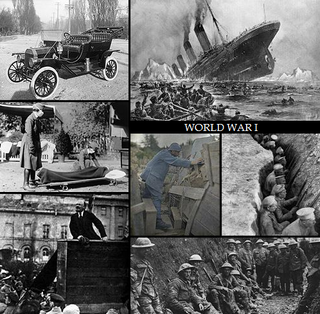
The 1910s was the decade that began on January 1, 1910, and ended on December 31, 1919.

The 1912 United States presidential election was the 32nd quadrennial presidential election, held on Tuesday, November 5, 1912. Democratic Governor Woodrow Wilson of New Jersey unseated incumbent Republican President William Howard Taft while defeating former President Theodore Roosevelt and Socialist Party nominee Eugene V. Debs.
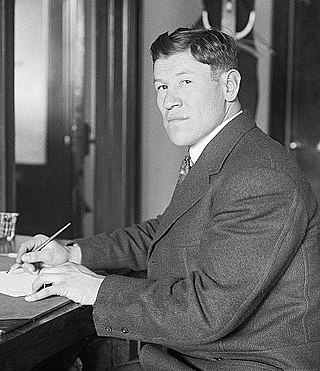
James Francis Thorpe was an American athlete and Olympic gold medalist. A member of the Sac and Fox Nation, Thorpe was the first Native American to win a gold medal for the United States in the Olympics. Considered one of the most versatile athletes of modern sports, he won two Olympic gold medals in the 1912 Summer Olympics. He also played football, professional baseball, and professional basketball.

From the Manger to the Cross or Jesus of Nazareth is a 1912 American drama film directed by Sidney Olcott, written by Gene Gauntier, and starring Robert Henderson-Bland as Jesus of Nazareth. Filmed on location in Egypt and in Palestine, it tells the story of Jesus's life, interspersed with verses from The Bible.

Universal City Studios LLC, doing business as Universal Pictures is an American film production and distribution company that is a division of Universal Studios, which is owned by NBCUniversal, a division of Comcast.
A feature film or feature-length film, also called a theatrical film, is a narrative film with a running time long enough to be considered the principal or sole presentation in a commercial entertainment program. The term feature film originally referred to the main, full-length film in a cinema program that included a short film and often a newsreel. Matinee programs, especially in the US and Canada, in general, also included cartoons, at least one weekly serial and, typically, a second feature-length film on weekends.
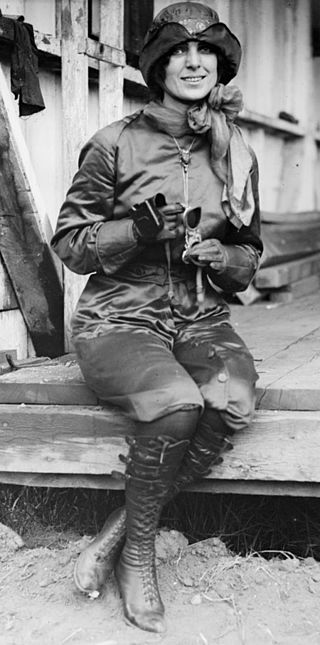
Harriet Quimby was an American pioneering aviator, journalist, and film screenwriter. In 1911, she became the first woman in the United States to receive a pilot's license and in 1912 the first woman to fly across the English Channel. Although Quimby died at the age of 37 in a flying accident, she strongly influenced the role of women in aviation.

The Musketeers of Pig Alley is a 1912 American short drama and a gangster film. It is directed by D. W. Griffith and written by Griffith and Anita Loos. It is also credited for its early use of follow focus, a fundamental tool in cinematography.
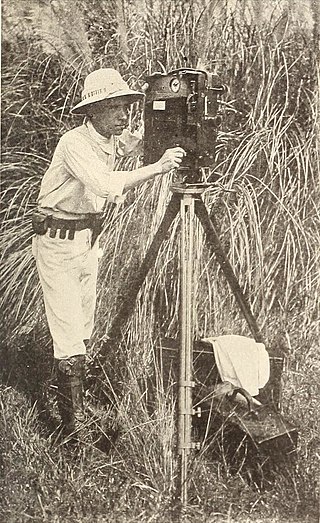
George K. Hollister was an American pioneer cinematographer.

The United States occupation of Nicaragua from 1912 to 1933 was part of the Banana Wars, when the U.S. military invaded various Latin American countries from 1898 to 1934. The formal occupation began in 1912, even though there were various other assaults by the U.S. in Nicaragua throughout this period. American military interventions in Nicaragua were designed to stop any other nation except the United States of America from building a Nicaraguan Canal.

Mutual Film Corporation was an early American film conglomerate that produced some of Charlie Chaplin's greatest comedies. Founded in 1912, it was absorbed by Film Booking Offices of America, which evolved into RKO Pictures.

Barratt O'Hara of Chicago was an American Democratic politician serving as a U.S. Congressman from Illinois and lieutenant governor of Illinois. He was the last Spanish–American War veteran to serve in Congress.

The United States competed at the 1912 Summer Olympics in Stockholm, Sweden. 174 competitors, took part in 68 events in 11 sports. Out of the 174 athletes who had participated, 64 won medals.
Events from the year 1912 in the United States.
Little is a synonym for small size and may refer to:
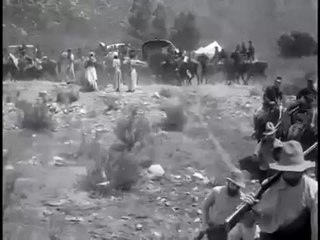
The Massacre is a 1912 American silent Western film directed by D. W. Griffith and released by Biograph Studios. It stars Blanche Sweet and Wilfred Lucas. The film was shot in 1912 and released in Europe that year, but not released in the United States until 1914.

The men's eight competition at the 1936 Summer Olympics took place at Grünau Regatta Course in Berlin, Germany. The event was held from 12 to 14 August, and was won by a United States crew from the University of Washington. There were 14 boats from 14 nations, with each nation limited to a single boat in the event. The victory was the fifth consecutive gold medal in the event for the United States and seventh overall; the Americans had won every time they competed. Italy repeated as silver medalists. Germany earned its first medal in the men's eight since 1912 with its bronze. Canada's three-Games podium streak ended.

Women's suffrage, the legal right of women to vote, has been depicted in film in a variety of ways since the invention of narrative film in the late nineteenth century. Some early films satirized and mocked suffragists and Suffragettes as "unwomanly" "man-haters," or sensationalized documentary footage. Suffragists countered these depictions by releasing narrative films and newsreels that argued for their cause. After women won the vote in countries with a national cinema, women's suffrage became a historical event depicted in both fiction and nonfiction films.